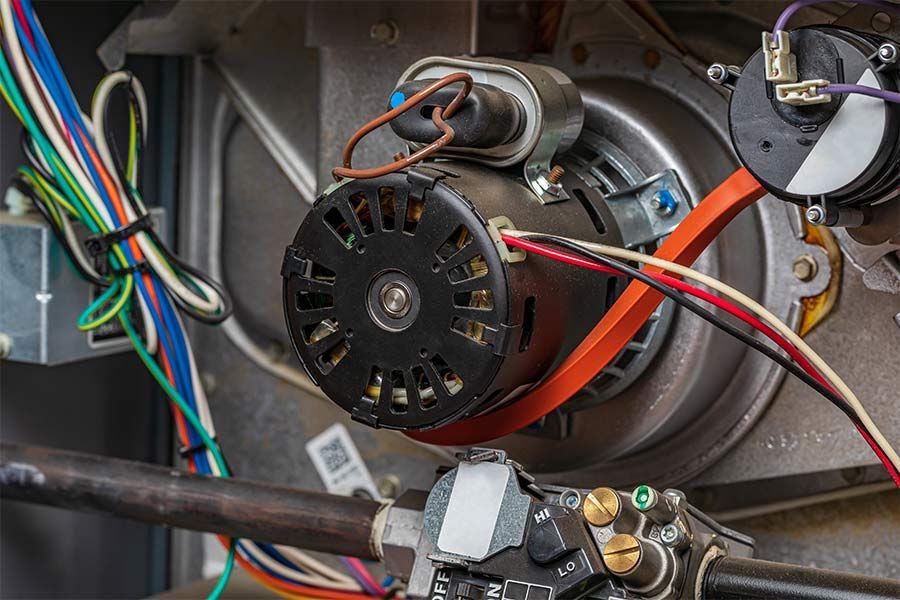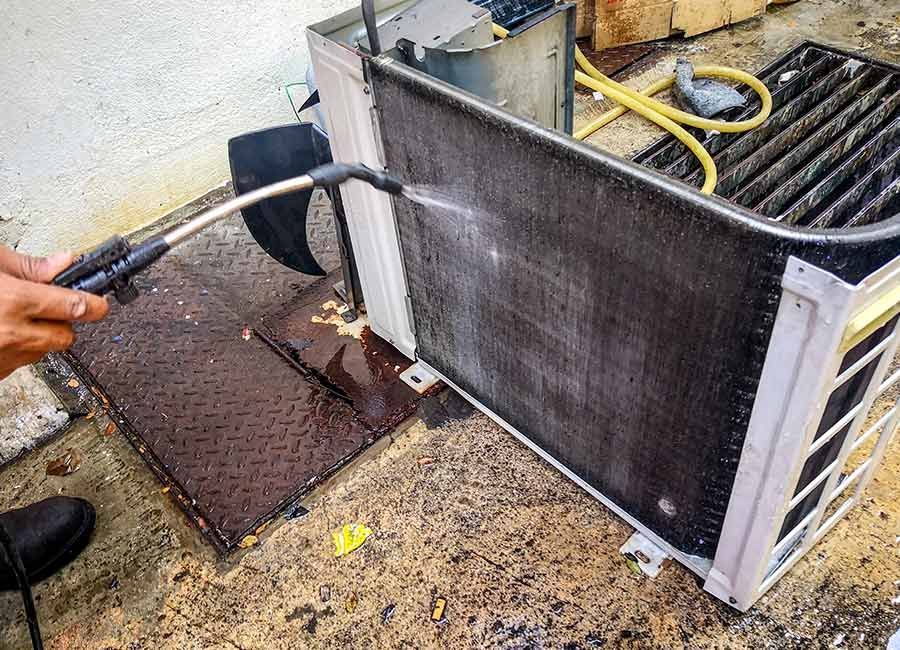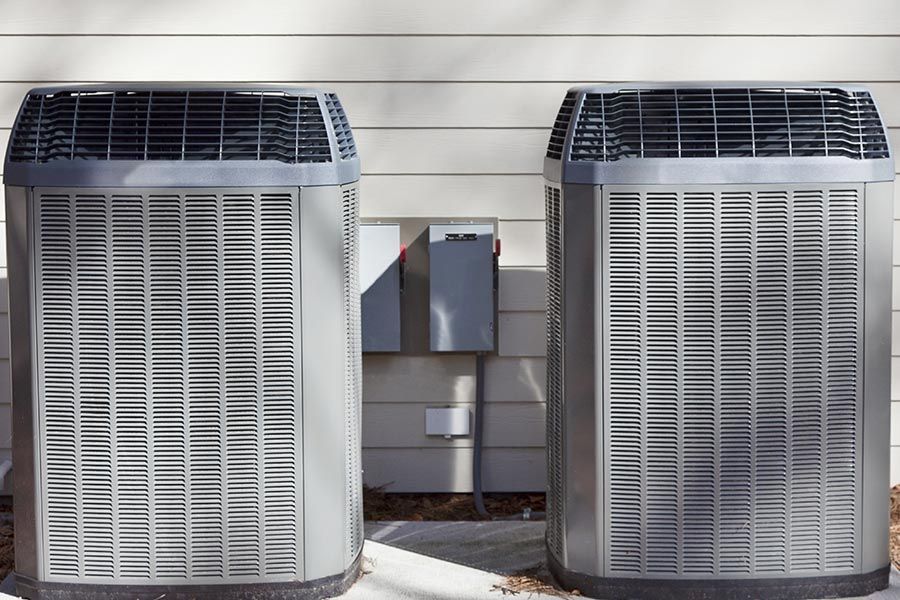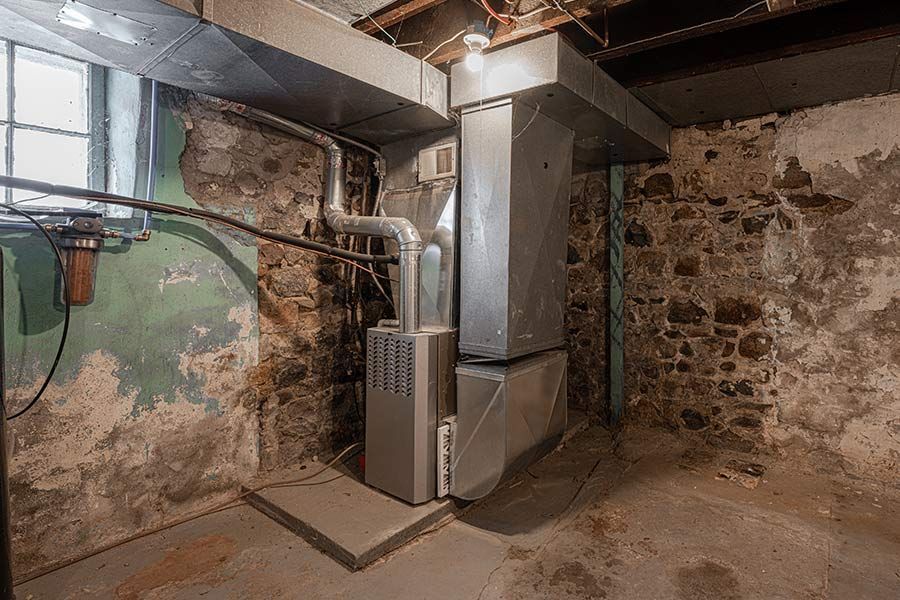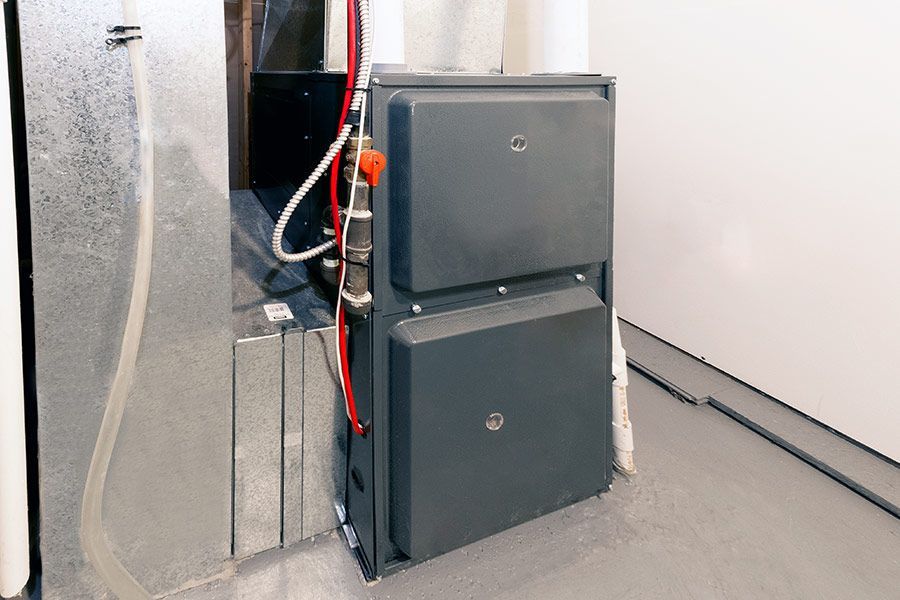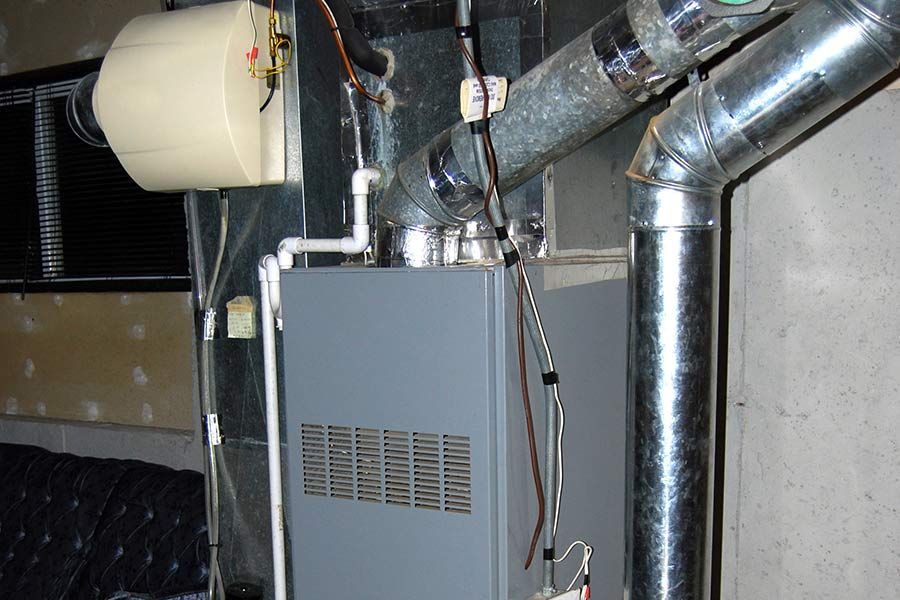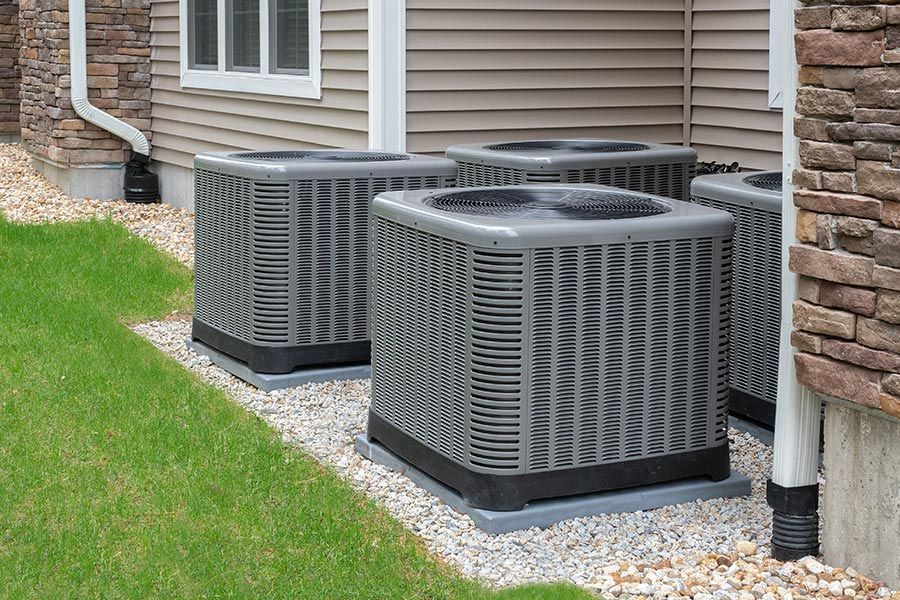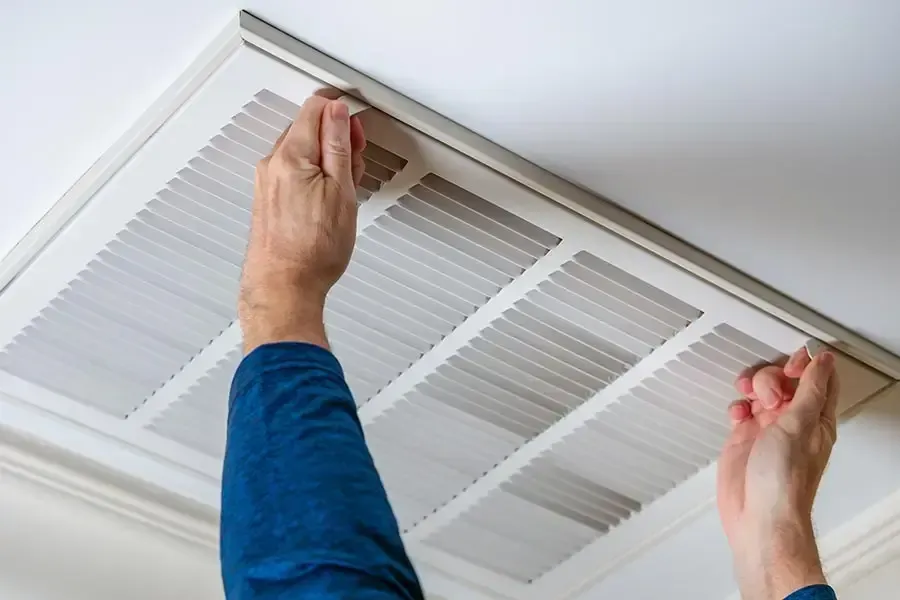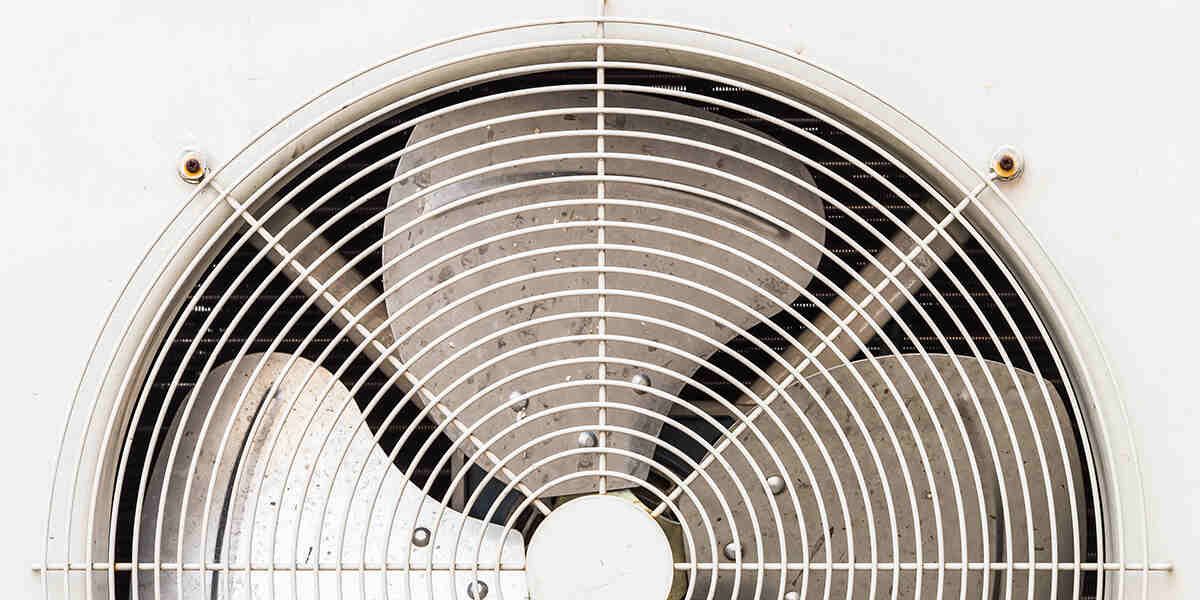We're Not Comfortable Until You Are
10 Reasons Why Regular AC Inspections Are Important
Your AC unit is doing just fine, but with regular inspections, you could set yourself up for unexpected breakdowns and costly repairs. It’s not just about avoiding emergencies; these check-ups can significantly improve your energy efficiency, reducing those monthly bills. Plus, they play an essential role in extending the lifespan of your system, ensuring you get the most out of your investment. Curious about how else regular inspections can benefit you? Let’s examine the key reasons why they’re crucial for maintaining top performance and safety.
Prevent Unexpected Breakdowns
Regular AC inspections help prevent unexpected breakdowns by identifying potential issues early. When you routinely check your air conditioning system, you can spot minor problems before they escalate into major ones. This proactive approach saves you from the headache of emergency AC repairs, which often come with higher costs and long waiting times during peak summer months. By catching these issues in advance, you guarantee that your AC unit is fully functional when needed.
Preparing for summer is vital, especially if you’re committed to providing comfort and relief to others. A well-maintained AC system means fewer disruptions and more consistent performance, allowing you to focus on serving others without worrying about sudden failures. Regular inspections typically include checking refrigerant levels, inspecting electrical connections, and cleaning or replacing filters. These steps ensure your unit operates smoothly throughout the hotter months.
In addition, scheduling regular inspections can extend the lifespan of your AC unit. By preventing unexpected breakdowns, you avoid emergency repairs and ensure your system stays reliable for years to come. This diligence reflects a commitment to serving those who depend on you for a comfortable environment.
IMPROVE ENERGY EFFICIENCY
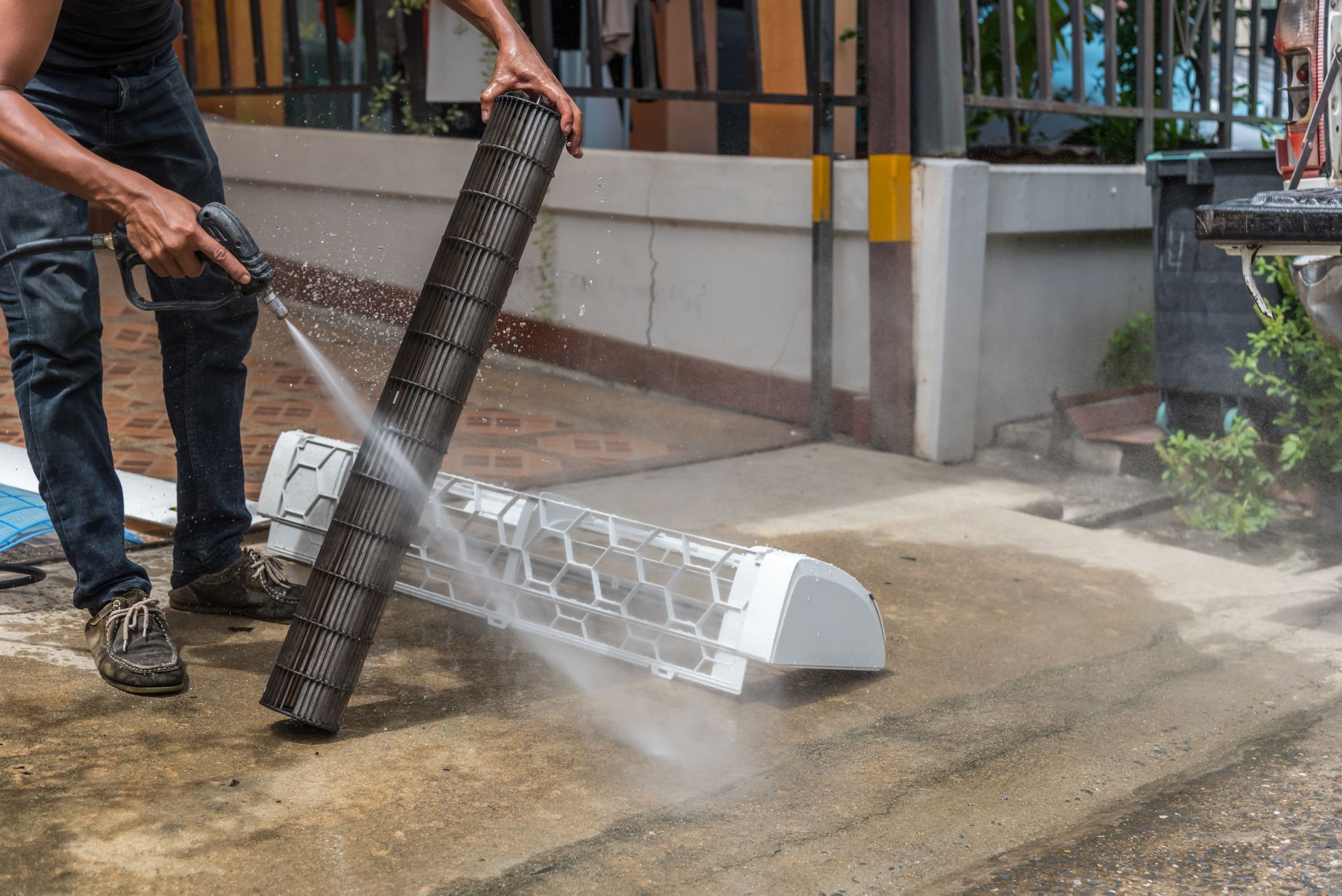
Did you know regular AC inspections can greatly improve your system’s energy efficiency? By keeping up with these inspections, you guarantee your air conditioning unit runs smoothly and effectively, which is vital for those looking to serve others by maintaining a comfortable environment. During an inspection, a technician will focus on several key areas directly impacting energy efficiency.
- Clean filters: Dirty filters restrict airflow, making your AC work harder than necessary. Clean filters ensure peak airflow, reducing the strain on your system.
- Optimize settings: Technicians will fine-tune your AC settings to ensure they operate efficiently and use the least energy to achieve the desired temperature.
- Inspect coils: Dirty coils can also impede your AC’s performance. Cleaning these coils helps the unit transfer heat more effectively, improving overall efficiency.
- Check refrigerant levels: Proper refrigerant levels are vital for efficient cooling. Low levels, often caused by Refrigerant Leaks, can cause your AC to consume more energy while delivering less cooling power, ultimately affecting system performance and increasing energy costs.
LOWER ENERGY BILLS
Enhancing your AC’s energy efficiency can significantly lower your energy bills. Regular AC inspections play a vital role in identifying and addressing inefficiencies that might be causing higher energy consumption. Clean ductwork guarantees that air flows freely and efficiently throughout your home, reducing your AC unit's effort to maintain a comfortable temperature. Duct cleanliness is essential, as clogged or dirty ducts can force your system to work harder, using more energy and driving up your utility costs.
Seasonal adjustments are another critical aspect of lowering energy bills. Professional technicians can fine-tune your AC settings according to the changing seasons, ensuring your system operates at peak performance year-round. For instance, they might adjust the thermostat settings, check refrigerant levels, and inspect the overall condition of the unit to prevent any potential issues that could escalate into costly repairs or increased energy use.
EXTEND AC LIFESPAN
Scheduling regular AC inspections is crucial for extending the lifespan of your unit. When you prioritize these check-ups, you guarantee that all air conditioning system components are running smoothly, reducing the risk of unexpected breakdowns and costly repairs. By catching issues like component wear early, technicians can make necessary adjustments or replacements, preventing minor problems from escalating into major ones.
Regular inspections contribute significantly to system longevity by maintaining peak performance across all parts. Neglecting these routine evaluations can lead to accumulated wear and tear, which deteriorates your system faster and shortens its lifespan. By keeping everything in good working order, you’re helping your AC last longer and ensuring it operates efficiently throughout its extended life.
Here are some specific benefits of regular AC inspections:
- Early detection of component wear: Identifying worn parts before they fail.
- Improved efficiency: Ensuring all components work together seamlessly.
- Reduced repair costs: Addressing minor issues before they become major problems.
- Prolonged system longevity: Keeping the entire system in peak condition.
MAINTAIN AIR QUALITY
Regular AC inspections play an essential role in maintaining the air quality within your home. When you ensure that your air conditioning system is regularly checked, you contribute significantly to the well-being of everyone in your household. One of the critical aspects of these inspections is filter replacement. Over time, air filters accumulate dust, allergens, and other pollutants, compromising indoor air quality. Replacing these filters regularly helps keep the air clean and free from harmful particles that could affect respiratory health.
Mold prevention is another critical factor in maintaining air quality through regular AC inspections. If not properly maintained, mold can thrive in the moist environments of your air conditioning system. Regular inspections help identify and eliminate any moisture buildup, thereby preventing mold growth and the subsequent spread of mold spores throughout your home. This improves air quality and protects against potential health hazards associated with mold exposure.
IDENTIFY MINOR ISSUES EARLY
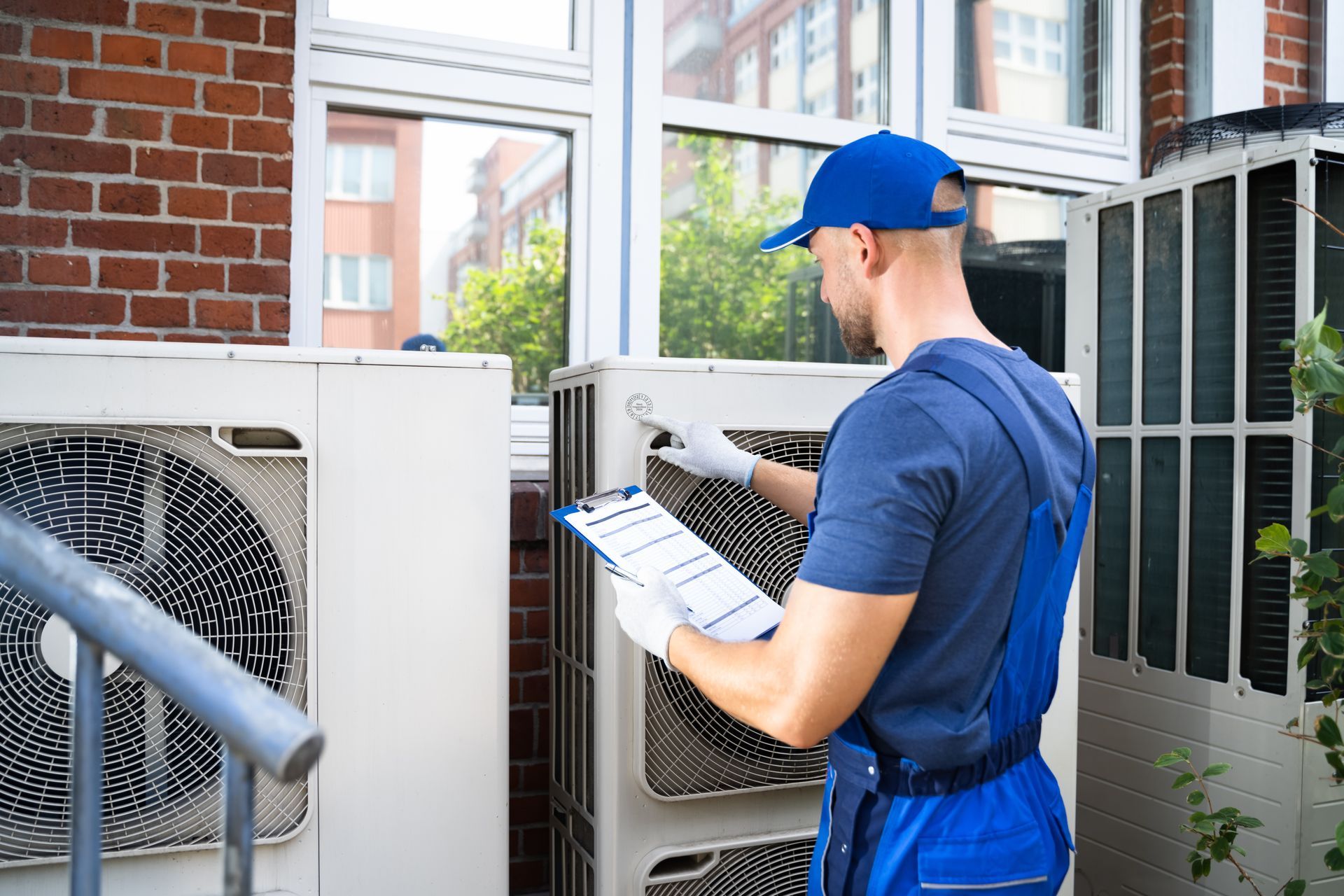
Moreover, maintaining air quality through regular AC inspections helps you identify minor issues early before they escalate into costly repairs. By catching problems early, you can guarantee your system operates efficiently and reliably, serving others by providing a comfortable environment. One of the key benefits of regular inspections is the ability to pinpoint leaks, which, if left unchecked, can cause significant damage and reduce system efficiency.
During an inspection, technicians will:
- Identify leaks in the system that could lead to water damage or reduced cooling efficiency.
- Check filters to ensure they are clean and do not obstruct airflow, which can strain the system.
- Inspect electrical components to ensure they function correctly, preventing potential hazards.
- Examine refrigerant levels, ensuring they are adequate for peak performance.
These steps are essential for maintaining the longevity and efficiency of your AC unit. By addressing these minor issues promptly, you avoid the inconvenience and expense of major repairs down the line. Regular inspections allow you to provide a safe and comfortable environment for those you serve, ensuring their well-being and satisfaction. Remember, proactive maintenance is key to preventing small issues from becoming significant problems.
ENHANCE COOLING PERFORMANCE
By guaranteeing your AC unit is regularly inspected, you can greatly improve its cooling performance and create a more comfortable living space. Regular inspections empower technicians to optimize airflow by cleaning and adjusting components like filters and coils, ensuring your system operates efficiently. When airflow is maximized, your AC unit doesn’t have to work as hard to cool your home, boosting comfort and reducing energy consumption and utility costs.
Moreover, inspections help detect leaks in the refrigerant lines, which are vital for maintaining top cooling performance. Leaks can lead to a drop in refrigerant levels, causing your AC to struggle and possibly fail to cool your home effectively. Identifying and fixing these leaks early ensures that your system maintains the correct refrigerant charge, improving its efficiency and longevity.
Additionally, regular inspections can identify and resolve minor issues before they escalate into major problems, which could impair cooling performance. This proactive approach ensures that your AC unit remains in top condition, allowing it to provide consistent and effective cooling. Regular inspections are vital for maintaining an efficient, reliable, and high-performing air conditioning system.
ENSURE SAFE OPERATION
Regularly inspecting your AC unit guarantees it operates safely and minimizes risks to your home and family. Regular inspections allow you to catch potential hazards early, ensuring your AC system doesn’t become a safety concern. Technicians can detect leaks that, if left unchecked, could cause significant harm or damage. Moreover, they’ll check wiring for any signs of wear, fraying, or improper connections that could lead to electrical fires.
Committing to regular AC inspections, you proactively protect your loved ones. Here’s what technicians typically look for:
- Detect refrigerant leaks: These can harm health and the environment.
- Check wiring connections: Ensuring all electrical connections are secure prevents potential fires.
- Inspect safety switches: Verifying these components work properly helps prevent overheating or other malfunctions.
- Examine the compressor and fan: These crucial parts must be in top condition to avoid major breakdowns.
COMPLY WITH WARRANTY TERMS
Regular AC inspections are crucial to ensure you comply with your warranty terms. Most manufacturers require periodic maintenance to maintain the validity of your warranty. By scheduling regular inspections, you’re following these guidelines and safeguarding your investment in the long run.
To uphold the validity of your warranty, you need to ensure that your AC unit is in top condition. Regular inspections help identify and address minor issues before they escalate, ensuring the system operates efficiently. Neglecting these inspections could lead to more significant problems that might void your warranty, leaving you responsible for costly repairs or replacements.
Additionally, keeping detailed records of your inspections can be advantageous. These records demonstrate that you’ve taken the necessary steps to maintain your AC unit according to the manufacturer’s requirements. This documentation can be invaluable if you ever need to file a warranty claim, as it shows that you’ve adhered to the terms set forth by the manufacturer.
REDUCE REPAIR COSTS
Detecting potential issues early through regular AC inspections can significantly reduce repair costs. By guaranteeing your system is checked frequently, you can identify and address minor problems before they escalate into major, costly repairs. Regular inspections also aid in maintaining technician availability, as scheduled maintenance allows you to avoid the rush during peak seasons when technicians are in high demand.
- Spotting leaks: Identifying and fixing refrigerant leaks early prevents damage to the compressor, saving on replacement costs.
- Cleaning components: A clean system operates more efficiently, reducing the strain on parts and minimizing the likelihood of unexpected breakdowns.
- Tightening connections: Loose electrical connections can lead to shorts or failures, often more expensive than preventive tightening.
- Monitoring wear and tear: Regularly inspecting moving parts and replacing worn-out components before they fail can prevent extensive damage to the system.
Inspection frequency is vital; most experts recommend bi-annual inspections to keep your AC running smoothly. This proactive approach extends the lifespan of your air conditioning unit and ensures it operates efficiently throughout its service life. By committing to regular inspections, you’re investing in the long-term reliability and cost-effectiveness of your AC system.
CONCLUSION
By prioritizing regular AC inspections, you’ll prevent unexpected breakdowns, improve energy efficiency, and lower energy bills. These inspections will also prolong your AC’s lifespan, maintain air quality, and boost cooling performance. Additional benefits include ensuring safe operation, complying with warranty terms, and reducing repair costs. Don’t overlook the importance of these routine checks; they are crucial for your air conditioning system's best performance and longevity. To ensure your AC gets the care it needs, call Premier Systems today and schedule your inspection.
Frequently Asked Questions
How Often Should You Schedule Regular AC Inspections?
You should schedule regular AC inspections with seasonal frequency, ideally twice a year. This keeps your system running efficiently and guarantees warranty compliance. Regular check-ups help you serve others by maintaining a comfortable, reliable environment.
What Specific Components Are Checked During an AC Inspection?
During an AC inspection, they check the condenser and evaporator coils to ensure they’re clean and efficient. They also inspect filters, thermostats, and electrical connections to keep your system reliable and ready to serve you.
Can Regular AC Inspections Improve the Resale Value of a Home?
Regular AC inspections can skyrocket your home appraisal! When buyers see a well-maintained AC system, their confidence soars. It’s a small investment that shows you care, making your home irresistible to others.
Are There Any DIY Steps to Take Before a Professional AC Inspection?
Before a professional AC inspection, you can serve others by cleaning the filter and checking thermostat settings. These DIY steps guarantee your AC runs efficiently, making the technician’s job easier and speeding up the inspection process.
What Are the Signs That Indicate an AC System Needs an Inspection?
You should schedule an AC inspection if you hear unusual noises or notice increased humidity in your home. These signs often indicate underlying issues that require professional attention to guarantee your system serves you effectively.
We offer a variety of services to help keep your home running, including AC and heating services, indoor air quality support, HVAC services, and even a membership program.
Useful Links
Our Services
Contact Info
Premier Systems
All Rights Reserved | Premier Systems
All Rights Reserved | Premier Systems

